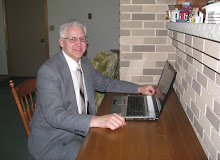A man has accomplished much when he earns approval from Englishmen for his work, over the work of an Englishman. That is what Noah Webster was able to accomplish. The excellence of Noah Webster's work is the reason he surpassed Samuel Johnson as the premier lexicographer in world history. His commitment to applying a Christian worldview to every area of life is the reason for the excellence of his work.
Noah Webster was defining the characteristics in his life at the same time that America was being birthed. The events that take center stage always define the leaders who emerge in any time and place in history, no matter the course that they choose to travel. Noah Webster's dictionary incorporates the three main principles that defined Noah Webster's life activities. It manifests a Christian worldview, a Christian philosophy of government, and a distinctly Christian philosophy of education.
Mr. Webster saw, with the rise of a new form of government, which necessitated new modes of life, ideas, laws, and institutions, a need for new words, new uses and new standards for words. There was already emerging a great difference between American English and its predecessor in England. Noah understood that just as America had replaced the chains of British tyranny in her government, she must replace the corrupted standards of the British language.
What Noah Webster understood, that is lost on most Americans in the 21st century, is that every area of life and thought is influenced by the worldview that predominates in a society. British culture had long discarded Christianity as the standard for government and language. In his Master's thesis from Yale College, in 1781, he wrote, “This country must in some future time, be as distinguished by the superiority of her literary improvements, as she is already by the liberality of her civil and ecclesiastical constitutions.”
A centerpiece of His lexicography was the principles that he advanced concerning change and immutability. He shifted “standard usage” from the literati to the common man. He recognized that authors and writers were more prone to increase the use of modish, capricious improprieties in language than the common man. This was especially true of the American common man, because he was nothing like the illiterate peasants of England. America's common man was well educated. He read a newspaper weekly, as well as the Bible, sermons, treatises on the Christian religion, ethics, geography, and history.
Four things lifted Noah Webster to preeminence as a lexicographer for his time. One, he surpassed Samuel Johnson, England's leading lexicographer, by 12,000 words with his dictionary, and that was after he eliminated about two thirds of the vulgar words of Johnson. Mr. Webster's selection of words set it apart from British English, in that his selection of words related to the distinctly Christian form of government, view of liberty, property, and the individual. Two, he believed that the etymology of all meanings could be found in one fundamental idea. Three, He maintained a high standard of purity in language. Lastly, He placed American authors, such as Washington, Adams et. al. on par with British authors.
The 1828 Webster Dictionary is a great source for understanding the founding era. His commitment to applying a Christian worldview to all areas of life are demonstrated throughout his writings. His writings on politics reveal his understanding of the Biblical model of republicanism. His text books unwrap his commitment to a distinctly Christian education. Finally, the 1828 Noah Webster Dictionary confirms his dedication to applying a Christian worldview to language.
It is the opinion of the staff at Christian Worldview of History and Culture that every Christian family should own a copy of the 1828 Noah Webster Dictionary. Therein you will find Biblical definitions applied to American English. The 1828 Noah Webster Dictionary is your source for understanding the writings of the founders, as they were in large part the standard for the use of language as Noah Webster recorded it.
Subscribe to:
Post Comments (Atom)

No comments:
Post a Comment